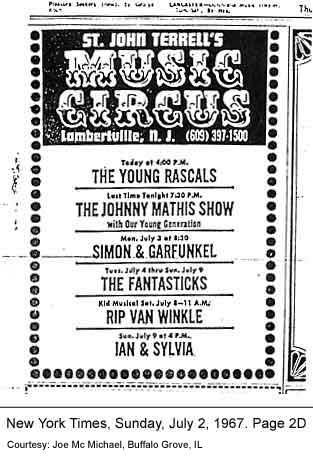The popularity and success of the Monday concerts in 1960, led Mr. Terrell to realized the tastes of his audience were changing. He began, over the next couple years, to experiment by presenting different genres. The first was Folk, which was very popular in the 1960s.
Then, Music Circus schedules indicate the first Rock performers appeared in 1965 during the Battle of the Bands for the Rock 'n' Roll World Championship on Monday, September 6, 1965. The popularity and success of this engagement led Mr. Terrell to book dozens of Rock Groups like, The Guess Who, Procol Harem, and Jefferson Airplane, from then on until the closing of the Music Circus at the end of the 1970 Season.
Alexander Rabbit
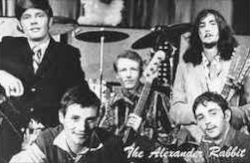
The Alexander Rabbit were a band who were unfortunately neglected in the music business. Forming in 1962 as the Galaxies IV, the original lineup consisted of Lee Demski (bass), J. Alan Fowler (drums/percussion), Charles Brody (organ), and Chris Holmes (guitar).
The Galaxies IV won the World Rock 'N' Roll Championship in 1965, beating out hundreds of bands. By winning the championship, the Galaxies IV were able to play on the same bill with acts like Vanilla Fudge, the Union Gap, the Righteous Brothers, the Isley Brothers, Tommy James and the Shondells, Paul Revere and the Raiders, and Jay and the Americans. The Galaxies IV first hit was "Don't Lose Your Mind."
In 1967, Steve Shierer (vocals) joined the band, which resulted in a change in the name of the group. Alexander Rabbit was born. Alexander Rabbit are most remembered for their live performance of the Spanish piece. The band released an album in 1970 entitled The Hunchback of Notre Dame (The Bells Were My Friends). The content is very melodic psych, similar to the sound of Gandalf. The album was recorded at Associated Recording Studios in New York, and was co-produced by Irving Spice and Max Ellen. The songs on the album show an honest effort and in general the sound is quite respectable.
The American Breed
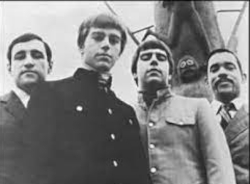
The American Breed was a late 1960s rock band from Cicero, Illinois that became famous during the late 1960s. They are best known for the 1967 smash, "Bend Me, Shape Me," a beloved oldies classic that kicks off with a short catchy drum solo followed by a soulful brassy fanfare.
Formed in 1958 and first known as Gary & The Nite Lites, the original lineup consisted of Al Ciner (guitar, vocals), Charles "Chuck" Colbert, Jr. (bass, vocals), Jim Michalak (drums), and lead singer/guitarist Gary Loizzo (August 16, 1945 - January 16, 2016). Michalak was later replaced by Lee Graziano (drums, vocals, trumpet). By early 1967, the band had signed with Acta Records and renamed itself The American Breed.
The American Breed had their first charting song in 1967 with the Carole King/Gerry Goffin-penned "I Don't Think You Know Me," which was followed later that year by the band's first Top 40 hit, "Step Out Of Your Mind" (1967). The American Breed's fame began to take off in late 1967 with the Scott English/Larry Weiss-penned "Bend Me, Shape Me" (1967), which became a Top 5 hit and soon after went gold. The band's other hits, which continued through 1968, also include "Green Light" (1968), "Ready, Willing And Able" (1968), and "Anyway That You Want Me" (1968). The band had its final charting song in 1969 with "Room At The Top."
Canned Heat
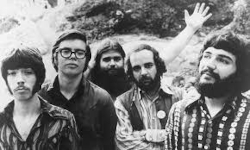
Sunday, August 2, 1970
Emerging in 1966, Canned Heat was founded by blues historians and record collectors Alan "Blind Owl" Wilson and Bob "The Bear" Hite. Hite took the name "Canned Heat" from a 1928 recording by Tommy Johnson. They were joined by Henry "The Sunflower" Vestine, another ardent record collector who was a former member of Frank Zappa's Mothers of Invention. Rounding out the band in 1967 were Larry "The Mole" Taylor on bass, an experienced session musician who had played with Jerry Lee Lewis and The Monkees and Adolfo "Fito" de la Parra on drums who had played in two of the biggest Latin American bands, Los Sinners and Los Hooligans.
The band attained three worldwide hits, "On The Road Again" in 1968, "Let's Work Together" in 1970 and "Going Up The Country" in 1969 became rock anthems throughout the world with the latter being adopted as the unofficial theme song for the film Woodstock and the "Woodstock Generation."
They secured their niche in the pages of rock 'n' roll history with their performances at the 1967 Monterey Pop Festival (along with Jimi Hendrix, Janis Joplin and The Who) and the headlining slot at the original Woodstock Festival in 1969.
On September 3rd, 1970, the band was shattered by the suicide of Alan Wilson. His death sparked reconstruction within the group and member changes have continued throughout the past five decades.
Catmother and the All Night News Boys
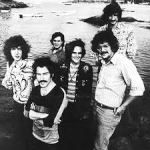
All Night News Boys
Cat Mother and The All Night Newsboys was an American musical group, originally formed in New York and later based in Mendocino, California, most active in the late 1960s and early 1970s.
Cat Mother and The All Night Newsboys was co-founded by Roy Michaels (February 25, 1942-September 23, 2008) and Bob Smith (July 7, 1942-March 21, 1991) in the fall of 1967. Michaels had previously been playing with Stephen Stills and Richie Furay in the Au Go Go Singers, prior to the formation of Buffalo Springfield.
The ensemble's popularity in New York grew during 1967 and 1968, through regular appearances at the Cafe Wha?, which led to an engagement as the house band at New York's Electric Circus.
The band was particularly notable for its rock and roll medley "Good Old Rock 'n' Roll", a Top 40 hit in the summer of 1969, reaching no. 21 on the U.S. Billboard Pop Chart.
The single and the band's first album, The Street Giveth and the Street Taketh Away, were produced by Jimi Hendrix. The association with Hendrix came through the band meeting him in New York City. As part of the band's actions to sever ties with manager Michael Jeffery, the group relocated to San Francisco in 1970, and later settled in the Mendocino area. The band continued to perform until 1977.
Chicago Transit Authority
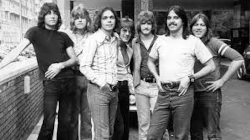
July 29, 30, 31, 1970
Chicago is an American rock band formed in Chicago, Illinois, in 1967. The group was initially billed as The Big Thing before calling themselves the Chicago Transit Authority in 1968, and then shortening the name in 1969. The self-described "rock and roll band with horns" blended elements of classical music, jazz, R&B, and pop music. They produced numerous top-40 hits over two decades, and continue to record and perform live.
The band's first album, Chicago Transit Authority (1969), a sprawling double album filled with experimental rock songs, failed to produce a hit single. Their second album, another double album simply titled Chicago (1970) (later retroactively titled Chicago II) continued with the format of experimental rock, however the album produced two top-10 singles, "Make Me Smile," which peaked at 9 on the Billboard Hot 100, and "25 or 6 to 4," which peaked at 4. Re-releases of several singles from the first album also charted in the top 10 in 1970, and 1971.
The band would continue to produce hit albums based on the formula established with their first two records until 1978, when guitarist Terry Kath died of an accidental self-inflicted gunshot wound. The band changed sounds as the 1980s began, where Peter Cetera and producer David Foster took the band in a less progressive direction, producing a number of soft rock and easy listening hits, including "Hard to Say I'm Sorry" (1982) from Chicago 16 and "You're the Inspiration" (1984) from Chicago 17, the band's biggest selling album in their career.
Country Joe and the Fish
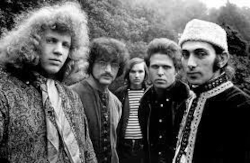
Country Joe and the Fish was an American psychedelic rock band formed in Berkeley, California, in 1965. The band was among the influential groups in the San Francisco music scene during the mid- to late 1960s. Much of the band's music was written by founding members Country Joe McDonald and Barry "The Fish" Melton, with lyrics pointedly addressing issues of importance to the counterculture, such as anti-war protests, free love, and recreational drug use. Through a combination of psychedelia and electronic music, the band's sound was marked by innovative guitar melodies and distorted organ-driven instrumentals which were significant to the development of acid rock.
The band self-produced two EPs that drew attention on the underground circuit before signing to Vanguard Records in 1966. Their debut album, Electric Music for the Mind and Body, followed in 1967. It contained their only nationally charting single, "Not So Sweet Martha Lorraine", and their most experimental arrangements.
Their second album, I-Feel-Like-I'm-Fixin'-to-Die, was released in late 1967; its title track, with its dark humor and satire, became their signature tune and is among the era's most recognizable protest songs. Further success followed, including McDonald's appearance at Woodstock, but the group's lineup underwent changes until its disbandment in 1970. Members of the band continue in the music industry as solo recording artists and sporadically reconvene.
A Memory from Rick Hesel:
By routine on Sundays, a musical was performed at 7:30 in the evening. Rock and Folk concerts were performed at 4pm. On one particular Sunday, several nuns bought tickets at the box office just before 4pm for the evening performance of "The Sound of Music," The staff assumed they would bide their time until the "Sound of Music" was performed at 7:30. Country Joe and the Fish was the act scheduled at 4pm. (This was a group whose dark humor and satirical lyrics pointedly addressed issues of importance to the counterculture, such as anti-war protests, free love, and recreational drug use.) At intermission time of the Country Joe concert, the nuns meekly approached the box office and modestly asked, "Is this 'The Sound of Music?'" I tried not to laugh, and told them they would have to wait until 7:30 to see "The Sound of Music."
Also, Country Joe and the Fish did major damage to the dressing room and destroyed most of the microphones. David Hesel, my brother and Press Representative for the Music Circus at the time, wrote them a check, then stopped payment on it the following day. Their manager called David after he tried to deposit the check and it was rejected. He said something like "stopping payment on a check is illegal in California." My brother said, "Sue us. But I have to remind you that we're in New Jersey."
Rick Hesel, Treasurer
Creedmoor State
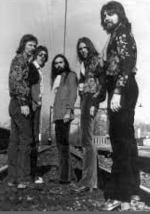
Psychedelic / progressive / blues rock band from New York, USA. The band was managed by Nick and Arnie Ungano, and indeed shared rosters with many popular big-name bands at Ungano's under the moniker "Creedmoor State." They were signed to Capitol Records and became "Plum Nelly" (named after the Booker T & The MG's song "Plum Nellie"). The band recorded their sole album, Deceptive Lines, at Capitol East from November through December 1970 with producer Ken Cooper. After touring the US, the band relocated to Los Angeles, California in 1974, replacing bassist Bob Feit with John Murphy and vocalist Ric Prince with Kenny Kerr. They remained there until their disbandment in 1976.
Delaney & Bonnie and Friends
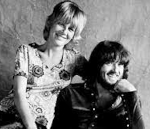
Delaney & Bonnie were an American duo of singer-songwriters Delaney Bramlett and Bonnie Bramlett. In 1969 and 1970, they fronted a rock/soul ensemble, Delaney & Bonnie and Friends, whose members at different times included Duane Allman, Gregg Allman, Eric Clapton, George Harrison, Leon Russell, Bobby Whitlock, Dave Mason, Rita Coolidge, and King Curtis.
Delaney and Bonnie's second album was The Original Delaney & Bonnie & Friends (Accept No Substitute) (1969). While not a big seller either, it created a buzz in music industry circles when, upon hearing pre-release mixes of the album, George Harrison offered Delaney and Bonnie a contract with the Beatles' Apple Records label. The Apple contract was subsequently voided
On the strength of Accept No Substitute, and at his friend Harrison's suggestion, Eric Clapton took Delaney & Bonnie and Friends on the road in mid-1969 as the opening act for the supergroup he had formed, Blind Faith. Clapton quickly became friends with Delaney, Bonnie and their band, preferring their music to Blind Faith's. Impressed by their live performances, he would often appear on stage with Delaney & Bonnie and Friends during this period, and he continued to record and tour with them following Blind Faith's August 1969 breakup.
The First Edition

Kenny Rogers and the First Edition, until 1969 billed as The First Edition, were an American rock band that fused rock and roll, R&B, folk, and country. Its core members were Kenny Rogers (lead vocals and bass guitar), Mickey Jones (drums and percussion) and Terry Williams (guitar and vocals). The band formed in 1967, with folk musician Mike Settle (guitar and backing vocals) and the operatically-trained Thelma Camacho (lead vocals) completing the lineup.
As the counterculture of the 1960s was developing, the First Edition signed with Reprise Records in 1967 and had their first big hit in early 1968 with the pop-psychedelic single "Just Dropped In (To See What Condition My Condition Was In).". After only one more chart hit, "But You Know I Love You", the group, newly billed as "Kenny Rogers and the First Edition", once again hit the top ten, this time in 1969 with the topical "Ruby, Don't Take Your Love to Town."
For the next six years, the First Edition moved between country rock, pop and psychedelic rock, enjoying worldwide success. By the mid-1970s, frontman Kenny Rogers had embarked on a solo music career, becoming one of the top-selling country artists of all time.
Fleetwood Mac
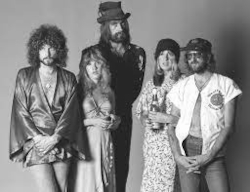
Fleetwood Mac are a British-American rock band, formed in London in 1967. Fleetwood Mac were founded by guitarist Peter Green, drummer Mick Fleetwood and guitarist Jeremy Spencer, before bassist John McVie joined the lineup for their self-titled debut album. Danny Kirwan joined as a third guitarist in 1968. Keyboardist Christine Perfect, who contributed as a session musician from the second album, married McVie and joined in 1970.
Originally primarily a British blues band, Fleetwood Mac scored a UK number one with "Albatross", and had other hits such as the singles "Oh Well" and "Man of the World." All three guitarists left in succession during the early 1970s, to be replaced by guitarists Bob Welch and Bob Weston and vocalist Dave Walker.
By 1974, all three of them had either departed or been dismissed, leaving the band without a male lead vocalist or guitarist. In late 1974, while Fleetwood was scouting studios in Los Angeles, he was introduced to American folk-rock duo Lindsey Buckingham and Stevie Nicks. The band soon asked Buckingham to be their new lead guitarist, and Buckingham agreed on condition that Nicks could also join the band. The addition of Buckingham and Nicks gave the band a more pop rock sound, and their 1975 self-titled album, Fleetwood Mac, reached No. 1 in the United States.
The Fugs
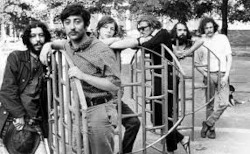
The Fugs are an American band formed in New York City in late 1964, by the poets Ed Sanders and Tuli Kupferberg, with Ken Weaver on drums. Soon afterward, they were joined by Peter Stampfel and Steve Weber of The Holy Modal Rounders. Kupferberg named the band from a euphemism for fuck used in Norman Mailer's novel The Naked and the Dead.
The band led the underground scene of the 1960s and became an important part of the American counterculture of that decade. The group is known for its comedic, even lewd, nature but also earned fame through their persistent anti-Vietnam War sentiment during the 1960s. Some 1969 correspondence, found inside an FBI file on the rock group The Doors, called The Fugs the "most vulgar thing the human mind could possibly conceive."
Aside from derision for their "scatological" lyrics, the Fugs have also been labeled "avant-rock."
The Galaxies IV
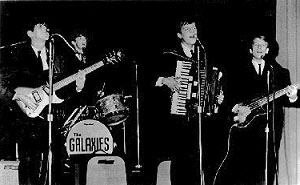
Rock 'n' Roll World Championship
L to R: Chris Holmes, Alan Fowler,
Charles Brodowicz and Len Demski
The First Annual Rock 'n' Roll World Championships, in 1965, had over 300 bands vying for top honors, with the "Galaxies IV" winning. Sometimes this event was referred to as "The Rock 'n' Roll Olympics."
The Galaxies IV formed at Catholic school in Trenton, NJ in 1962. Members were T.J. Tindall on guitar, Chris Holmes on guitar and vocals, Charles Brodowicz keyboards, Len Demski bass, and Alan Fowler on drums. T.J. Tindall left the band early on when his family moved to Pennington, NJ; he eventually joined the Edison Electric Band.
The first Galaxies IV 45RPM was "Let Me Hear You Say Yeah" / "Till Then You'll Cry," recorded at Regent Sound studios in New York City and released on the Veep label in June of 1965.
That summer of 1965 the Galaxies IV played forty shows during at the second session of the World's Fair in Flushing Meadows, including eight shows at the New Jersey Pavilion.
The band received a notice in Billboard for winning the First Annual Rock 'n' Roll Olympics on Labor Day 1965 at St. John Terrell's Music Circus in Lambertville, NJ. It was a huge battle-of-the-bands, judged by Phil Spector and Cousin Brucie Morrow. The notice lists Charles Brody instead of Brodowicz, and says Billboard had mistakenly reported the Rubytones were the winners in a previous issue.
Source: https://garagehangover.com/galaxiesiv/
Photo Source: https://garagehangover.com/galaxiesiv/
At The New York World's Fair, they had a special day named just for them, were profiled by author James Mitchener on October 31, 1965 in The New York Times and, after their name change to Alexander Rabbit, they were asked to perform at Woodstock. They also won the honor of appearing as the rock band in the Lambertville Music Circus' production of "Bye Bye Birdie" in 1965
Source: home.unet.nl/kesteloo/galaxiesiv.html
In 1967, Steve Shierer (vocals) joined the band, which resulted in a change in the name of the group. Alexander Rabbit was born. Alexander Rabbit are most remembered for their live performance of the Spanish piece, Malagueña. The band released an album in 1970 entitled The Hunchback of Notre Dame (The Bells Were My Friends). The content is very melodic psych, similar to the sound of Gandalf. The album was recorded at Associated Recording Studios in New York, and was co-produced by Irving Spice and Max Ellen. The songs on the album show an honest effort and in general the sound is quite respectable.
The Guess Who
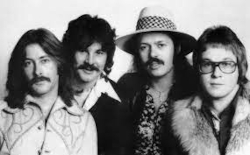
Saturday, August 22, 1970
The Guess Who was the most successful Canadian rock group of the late 1960s and early 1970s, and Canada's first rock superstars. The songwriting team of guitarist-singer Randy Bachman and lead singer-keyboardist Burton Cummings wrote such classic songs as "These Eyes," "Laughing," "No Time," "No Sugar Tonight" and "American Woman" (the first song by a Canadian band to hit No. 1 on the Billboard Hot 100 chart) before Bachman's departure in 1970.
The Guess Who emerged from a series of Winnipeg bands fronted by lead singer Chad Allan. In the late 1950s. Heavily influenced by the "British Invasion," the group issued a few singles and two albums. Although they developed a loyal following in Winnipeg, they received little radio support in the rest of the country, due in part to the refusal by most radio stations in Canada to play Canadian material.
When the band recorded a cover of the influential British hit "Shakin' All Over" in 1965, Quality Records producer George Struth released it to radio stations under the moniker "Guess Who?" in the hope that DJs would be more inclined to play a song by a mysterious new British band.
From 1966 to 1968, the band released a string of singles, primarily ballads, that reached the Top 40 in Canada. In 1968 the question mark was dropped and the group officially became The Guess Who.
In 1970 it was the album, American Woman, which elevated The Guess Who to a higher level of stardom. The title track had its origins in a concert at a curling rink in Southern Ontario. Bachman improvised the riff while tuning his guitar after breaking a string. The rest of the band joined in and Cummings came up with the lyrics, "American woman stay away from me," on the spot. An audience member was recording the show and the band got a copy of the cassette afterwards. RCA fell in love with the track, as did the public. The song became the first by a Canadian rock group to hit No. 1 in the US on the Billboard Hot 100, where it remained for three weeks.
The James Gang
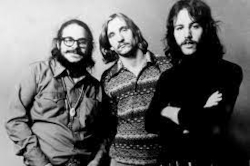
The James Gang was an American rock band formed in Cleveland, Ohio in 1966. The band went through a variety of line-up changes until they recorded their first album as a power trio consisting of Joe Walsh (guitars, lead vocals), Tom Kriss (bass) and Jim Fox (drums). Dale Peters replaced Kriss on bass for the band's second and third albums.
The band had two hit songs, "Funk #49" and "Walk Away," which continue to be popular on classic rock and AOR stations. In 1972, Walsh left to pursue a solo career and would later join the Eagles. The band continued on with a variety of other guitarists and lead singers to replace Walsh, but failed to produce a hit song over the course of six more studio albums and broke up in 1977. Various incarnations have reformed for several reunions since then.
Jefferson Airplane
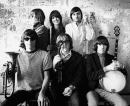
Jefferson Airplane formed in 1965 in the San Francisco Bay area during the summit of the counter culture sweeping the country, and soon became became a household name with appearances on radio, television, and top selling albums.
Jefferson Airplane's debut show was on August 13, 1965 at the Matrix nightclub in San Francisco, then went on with several successful tours including performances at the Berkeley Folk Festival, Monterey Jazz Festival, Monterey Pop Festival, Woodstock, and Altamont.
They recorded hit singles such as "White Rabbit," "Volunteers," "Embryonic Journey" and "Somebody to Love" and smash albums such as "Volunteers," "Surrealistic Pillow," "Bark" and "Takes Off."
The band featured: Grace Slick (vocals), Marty Balin (vocals and guitar), Paul Kantner (vocals and guitar), Jorma Kaukonen (guitar), Jack Casady (bass), and Spencer Dryden (drums). Founding members also included Signe Toly Anderson and Skip Spence. Later lineups of Jefferson Airplane included Joey Covington on Drums, and Papa John Creach on violins.
Around 1973 they disbanded, forming a generation of new bands including Jefferson Starship, Hot Tuna, and more. In 1989 a short reunion occurred, 1996 the band was inducted to the Rock & Roll Hall of Fame in Cleveland, Ohio, and in 2016, the band earned a Grammy Lifetime Achievement Award.
New York Rock & Roll Ensemble
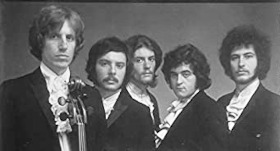
The New York Rock & Roll Ensemble was a rock band active in the late 1960s and early 1970s, whose music was described as "classical baroque rock". The group performed wearing classical musician's attire, white tie and tailcoat (not tuxedo). The band was formed by three Juilliard students Michael Kamen, Marty Fulterman (now known as Mark Snow) and Dorian Rudnytsky, plus two rock musicians Brian Corrigan and Clif Nivison.
Their recording debut was the 1968 eponymous album The New York Rock & Roll Ensemble, which broke the norm by using classical music instruments in rock songs and rock instruments in classical pieces. This fusion, daring at the time, impressed Leonard Bernstein who invited the group to appear at one of his Young People's Concerts with the New York Philharmonic Orchestra, where they performed their signature song "Brandenburg," based on the first movement of Bach's Fifth Brandenburg Concerto. This track showed the group at their best, starting off as a straight rendition featuring two oboes, guitar and cello, then transitioning into a rock tune, while continuing to use Bach's musical foundation.
Because Brandenburg was the song that showed the widest range of their musicianship, the group typically performed that song at television appearances on The Tonight Show, The Steve Allen Show and other TV shows of that era.
Brandenburg appeared on the group's second album Faithful Friends, which had improved production since their first and contained many of the songs that were part of their live act.
Their third album, Reflections, was recorded prior to Faithful Friends. Their last album was Freedomburger in 1972. Soon after the tour supporting this album, the band dispersed.
Michael Kamen later achieved fame for his many film scores and his "fusion" work. He died in 2003. Marty Fulterman adopted the name Mark Snow and gained renown for his scores and themes for TV shows, particularly The X Files.
From: Pioniere@.........Date: Fri, 5 Jan 1996
Subject: 1st Concert
"OK, what the heck...my first concert was the New York Rock & Roll Ensemble way back around 1968 [August 31, 1969, but who's counting?] at the Music Circus in Lambertville, NJ...anybody remember them (or even heard of them)? They were terrific (made at least five albums that I know of)."
Pacific Gas & Electric
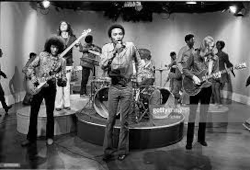
The history of Pacific Gas and Electric can be traced back to 1967 in Los Angeles. Self-taught guitarist Tom Marshall met bassist Brent Block at a party thrown by Block's former art teacher. The band they started was called "Pacific Gas and Electric Blues Band," one of the first, if not the first interracial band to hit the LA music scene. One of the early members was a drummer from the east coast named Charlie Allen. Charlie's vocal abilities were so great that he was relieved of his drum sticks, and became lead singer and front man, to be replaced on drums by Canned Heat's former drummer, Frank Cook, who had earlier signed on to manage the band.
By 1968, the band name was shortened to Pacific Gas and Electric, and included Allen, Cook, Marshall, Block, and guitarist Glenn Schwartz. They released their first album, "Get It On," that year on the Kent label. The next album, and the first released by Columbia, was simply called "Pacific Gas and Electric," in 1969. However, it was the next release, the "Are You Ready" LP that included their first mainstream hit. The title track reached #14 in the summer of 1970, and featured the backing vocals of the Blackberries.
The band did countless concerts, often appearing with other big musical acts of the era. On April 25, 1970, racists in Raleigh, North Carolina heckled the band off the stage. When the members were driving away, they came under gunfire. Despite four shots hitting their van, no one was hurt.
They made movie history when they appeared in and provided music to the Otto Preminger film "Tell Me That You Love Me, Junie Moon" starring Liza Minnelli.
Procol Harem
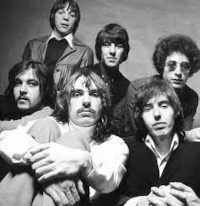
The origins of the band Procol Harum began in 1964 when Gary Brooker and Robin Trower formed a band called the Paramounts. The group had a minor hit with a cover of the song "Poison Ivy." The band went through various name and personal changes. In 1967, Gary Booker took the name of Gus Dudgeon's cat and formed the band Procol Harum. At the time of formation the band consisted of Gary Brooker, Ray Royer, David Knights, Matthew Fisher, Bobby Harrison and Keith Reid. Original Paramounts members Robin Trower and B.J. Wilson would replace Ray Royer and Bobby Harrison after the band's debut album.
The band's debut album in 1967 spawned the biggest hit of their career entitled "Whiter Shade of Pale." The song had originally been released as a stand alone single and had not been included in the U.K version of the album. However, it was included on the U.S. album.
The band released the album Shine On Brightly a year later in 1968. Procol Harum continued releasing records almost on a yearly basis until 1977. Robin Trower left the band in 1971 after recording five albums with the band. In 1991, the band reformed to record another album that featured original members including Robin Trower. The album was dedicated to B.J. Wilson who had passed away.
The band would release two more records, both many years apart. In 2003 they released The Well's On Fire and fourteen years later they released Novum.
Little Richard
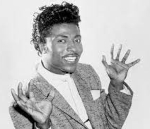
Little Richard helped define the early rock 'n' roll era of the 1950s with his driving, flamboyant sound. With his croons, wails and screams, he turned songs like "Tutti Frutti" and "Long Tall Sally" into huge hits and influenced such bands as the Beatles.
Born Richard Wayne Penniman on December 5, 1932, in Macon, Georgia, Little Richard was the third of 12 children. His father, Bud, was a stern man who made his living selling moonshine and didn't do much to hide his disdain for his son's early signs of homosexuality. At the age of 13 Richard was ordered to move out of the family home, and his relationship with his father was never repaired. When Richard was 19, his father was shot dead outside a local bar.
Upon moving out of his family's home, Richard was taken in by a white family who owned a club in Macon, where Richard eventually began performing and honing his talent.
In 1951 Richard caught his first major break when a performance at an Atlanta radio station yielded a record contract with RCA. But with a repertoire of mainly mild blues numbers that masked the searing vocals and piano that would come to define his rock music, Richard's career failed to take off as he'd hoped it would.
Over the next year and a half, the musician churned out several more rock hits, including "Long Tall Sally," "Good Golly Miss Molly" and "Send Me Some Lovin.' " With his blood-pumping piano playing and suggestive lyrics, Little Richard, along with the likes of Elvis Presley and Jerry Lee Lewis, established rock as a real musical form and inspired others, most notably the Beatles, to make a go of it.
But as his success soared, Little Richard, fueled by his earlier connections to the church, saw his doubts about rock deepen. In 1957 he abruptly and publicly quit performing rock and committed himself to the ministry and recording gospel songs. He recorded his debut religious album, God Is Real, in 1959.
In 1964, following the Beatles' recording of "Long Tall Sally," Little Richard plunged back into rock music. Over the ensuing decades, Little Richard continued to perform and record; though the public response failed to match the enthusiasm that greeted his earlier success, his importance in the development of rock music has never been questioned.
In 1986 Little Richard was one of the 10 original inductees into the Rock and Roll Hall of Fame. He was a recipient of a Lifetime Achievement Award from the National Academy of Recording Arts and Sciences in 1993, and a year later the Rhythm & Blues Foundation honored him with its prestigious Pioneer Award. Little Richard passed away on May 9, 2020, in Nashville, Tennessee from bone cancer.
Paul Revere and the Raiders
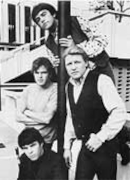
and the Raiders
The sudden surge of Paul Revere and his rocking Raiders (Drake Levin, Philip Volk, Mark Lindsay, and Mike Smith) from Portland, OR somewhat parallels the Beatle's climb from Liverpool. Their mushrooming attention and music dominance of the northwestern United States prompted Columbia Reords to sign Paul Revere and the Raiders to their brilliant roster of stars. in May of 1966 their hit-record, Kicks, had already sold 500,000 copies, and the Just Like Us LP had passed the 250,000 mark.
Rock 'n' Roll World Championship (Battle of the Bands)
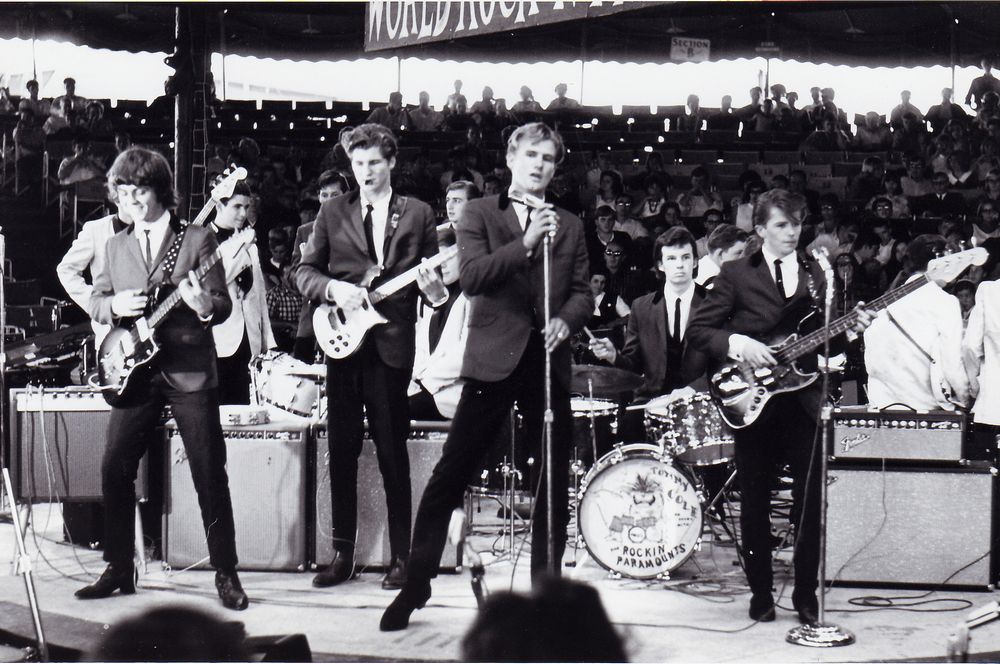
1966 Second Place Winners
Sunday, September 4, 1966
August 26 thru 27, 1967
Sunday, August 25, 1968
The First Annual Rock 'n' Roll World Championships, in 1965, had over 300 bands vying for top honors, with the "Galaxies IV" winning. Sometimes this event was referred to as "The Rock 'n' Roll Olympics."
In the 2nd year of the contest (1966), the event took on a greater magnitude by adding the National Tea Council as a co-sponsor, with the Music Circus. Regional contests were held in New York, Boston, Baltimore/Wash D.C., Miami, Pittsburgh, Los Angeles, Atlanta, Cincinnati, Dallas, and Kansas City. First prize was $1000, a TV Appearance & a recording contract. Second prize was $500 and a recording contract. Third prize was $250.
The 1966 winners were "Robin & the Hoods," of State College, PA, from the Pittsburgh regional finals. Second place that year went to "The Rocking Paramounts" from the Buffalo, NY region finals.
In 1967, the contest had grown to 2600 bands, from 15 regions across the USA. The 15 regional winners competed for the Championship in August, at the Music Circus between concerts by Robert Goulet, and Mitch Ryder, both of whom were judges along with author James Michener, band leader Paul Whiteman, representatives of the Press and Radio, and Former Winners.
First prize was, again $1000, a recording contract, and a TV appearance. But, an additional prize of Ampeg Musical Equipment was added. Ampeg had been added to the list of sponsors, and they were supplying the amplifiers on stage, for the event. Second prize was $500 and Third prize was $250.
Source: Bobby Scammell, "The Combinations" Easton, PA.
Mitch Ryder
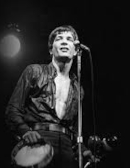
Mitch Ryder (born William Sherille Levise, Jr.; February 26, 1945) is an American musician who has recorded more than 25 albums over more than four decades.
Ryder is noted for his gruff, wailing singing style and his dynamic stage performances. He was influenced by his father, a musician. As a teenager, Ryder sang backup with soul-music group The Peps, but racial animosities interfered with his continued presence in the group.
Ryder formed his first band, Tempest, when he was at Warren High School, and the group gained some notice playing at a Detroit soul music club called The Village. Ryder next appeared fronting a band named Billy Lee & The Rivieras, which had limited success until they met songwriter / record producer Bob Crewe. Crewe renamed the group Mitch Ryder & The Detroit Wheels, and they recorded several hit records for his DynoVoice Records and New Voice labels in the mid to late 1960s.
In December 1966, producer Bob Crewe's vision for Mitch as a blue-eyed soul singer backed by a horn band (a la Wilson Pickett, Joe Tex, etc.) was put into motion. They assembled a 10 piece band of white R&B musicians. The band rehearsed for a month in a dance studio above the Cheetah, a night club at Broadway and 53rd in NYC, then hit the road as The Mitch Ryder Show in February, 1967.
Ryder's musical endeavors would see less success after the early 1970s. Ryder's participation with the Detroit Wheels ended just as the counterculture was becoming dominant in 1968. Ryder had one hit single from that period, a cover version of "What Now, My Love."
Sam the Sham
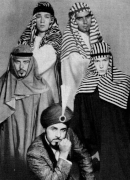
Domingo "Sam" Samudio (born February 28, 1937, in Dallas, Texas), better known by his stage name Sam the Sham, was known for his camp robe and turban and hauling his equipment in a 1952 Packard hearse with maroon velvet curtains. As the front man for the Pharaohs, he sang on several Top 40 hits in the mid-1960s, including "Wooly Bully" and "Li'l Red Riding Hood."
In 1967, Fran Curcio, Lorraine Gennaro and Jane Anderson (the Shamettes) joined Sam's newly restaffed Pharoahs. This augmented group toured Asia as Sam the Sham & the Pharaohs and the Shamettes. In mid-year the name was shortened to The Sam the Sham Revue.
"Black Sheep" b/w "My Day's Gonna Come" reached #62 on Billboard's Top 100. The next closest thing to a hit is "I'm Not a Lover Anymore," a slow ballad with two bookending allegretto mariachi sections; the band shouts HEY! after each bar of staccato trumpet (four HEYS! every time).
"Let It Eat" is more Pharoah zaniness. Another fun track is the story of Rojo, a fighting rooster who at the end "done chickened out." This was a cover of an Archie Campbell single in which Sam narrates the story while a 12 string guitarist plays a melancholy tune and someone does chicken imitations behind him. Everything drips with echo.
The Steve Miller Band
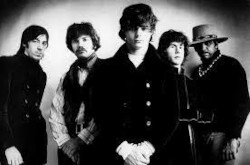
Miller's Greatest Hits 1974-78 received the RIAA Diamond Award with sales of more than fifteen million copies. It is among the 25 best-selling albums of all time.
At the start of his career, Miller soon became a mainstay of the San Francisco music scene that upended American culture in the late 60s. With albums like Children of the Future, Sailor and Brave New World, Miller perfected a psychedelic blues sound that drew on the deepest sources of American roots music and simultaneously articulated a compelling vision of what music - and, indeed, society - could be in the years to come.
Then, in the 70s, Miller crafted a brand of pure pop that was smart, polished, exciting and irresistible - and that dominated radio in a way that few artists have ever managed. Hit followed hit in what seemed like an endless flow: "The Joker," "Take the Money and Run," "Rock'n Me," "Fly Like an Eagle," "Jet Airliner," "Jungle Love," "Swingtown," and “Abracadabra,” among them. To this day, those songs are instantly recognizable when they crop up online or on the radio - and impossible not to sing along with. Their hooks are the very definition of indelible.
Running through Miller's distinctive catalog is a combination of virtuosity and song craft. And that's no accident. His parents were jazz aficionados - not to mention close friends of Les Paul and Mary Ford - so, as a budding guitarist, Miller absorbed valuable lessons from that musical tradition. When the family moved to Texas, Miller deepened his education in the blues, eventually relocating to Chicago, where he played with Muddy Waters, Howlin' Wolf, Buddy Guy and Paul Butterfield. That range of sources informs his music to this day.
Three Dog Night
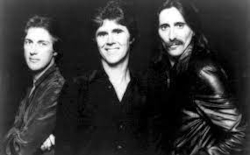
Three Dog Night formed in 1968 when Danny Hutton and Cory Wells met on tour with Sonny and Cher. The two decided to organize their own band and invited Chuck Negron to join them. Three Dog Night went on to release 21 consecutive Top 40 hits, including "Liar," "An Old Fashioned Love Song" and "Shambala." Born Emil Lewandowski to a single mother in Buffalo, N.Y., on Feb. 2, 1941, Wells grew up streetwise and had mostly black friends whose musical tastes he absorbed.
Along the way, the band bolstered the careers of a number of nascent songwriting powerhouses, including Elton John, Harry Nilsson, Laura Nyro, Hoyt Axton and Randy Newman. "Our whole claim to fame is we discovered a lot of unknown songwriters who turned out to be giants in the industry," Wells said last year in an interview with the Bowling Green, Ky., Daily News. "We brought them to the forefront and they became famous."
The band broke up in the mid-1970s, then briefly reunited in the early 1980s. In recent years, Hutton and Wells toured as Three Dog Night with other musicians, including keyboardist Jimmy Greenspoon and guitarist Michael Allsup from the original lineup.
Ike and Tina Turner

Ike & Tina Turner were an American musical duo consisting of husband and wife Ike Turner and Tina Turner. From 1960 to 1976, they performed live as the Ike & Tina Turner Revue, supported by Ike Turner's band the Kings of Rhythm and backing vocalists called the Ikettes. The Ike & Tina Turner Revue was regarded as "one of the most potent live acts on the R&B circuit."
The duo had a string of R&B hits with their early recordings "A Fool In Love", "It's Gonna Work Out Fine", "I Idolize You" (pioneers songs on straight- mid tempo R&B that shaped rock music and later genres like funk), "Poor Fool", and "Tra La La La La". The release of "River Deep – Mountain High" in 1966, followed by a tour of the UK with The Rolling Stones, increased their popularity in Europe. Their later works are noted for interpretive soul-infused re-arrangements of rock songs such as "Come Together", "Honky Tonk Woman", and "Proud Mary", the latter of which won them a Grammy Award in 1972. Ike & Tina Turner received the first Golden European Record Award for their international hit "Nutbush City Limits" in 1974. They released dozens of albums; their most successful being Workin' Together and Live at Carnegie Hall. Pitchfork listed their album River Deep – Mountain High among the best of its era.
Ike & Tina Turner were inducted to the Rock & Roll Hall of Fame in 1991. They have two singles inducted into the Grammy Hall of Fame, "River Deep – Mountain High" and "Proud Mary". Rolling Stone ranked them No. 2 on its list of the 20 Greatest Duos of All Time.
Johnny Winter
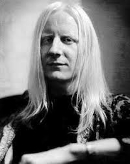
Son of John and Edwina, Winter was a native of Beaumont, Texas. Both Johnny and his younger brother Edgar were born with albinism. The pair began playing music before they went to school. In 1959 the Winter brothers, already known from local talent and TV shows, cut the singles School Day Blues and You Know I Love You. In 1962 Johnny formed Johnny and the Jammers, with Edgar on keyboards. In the early 60s Johnny recorded numerous singles for such local labels and scored a local hit with Eternally. Between 1965 and 1967 he played regularly across the deep south with Black Plague and his own band It and Them (also known as The Crystaliers). In 1966 Johnny hit the Billboard Hot 100 with a version of Harlem Shuffle, which he recorded with the Traits.
Winter found himself pursued by the New York club owner Steve Paul, who had read a Rolling Stones article about him and launched a campaign to become Winter's manager (which he eventually did). Paul set up a bidding contest between record companies that was won by Columbia, resulting in the debut album Johnny Winter (1969) reaching 23 on the charts. The follow-up, Second Winter, appeared in November 1969 and reached 55.
In 1970 Winter was dissatisfied enough with his band to drop them in favour of the McCoys. Calling themselves Johnny Winter And, they released a studio album that fared poorly, and a live follow-up that went to No 40 and was certified gold. However, shortly afterwards Winter was floored by heroin addiction and hospitalised. He would not make another album until Still Alive and Well (1973), a top 30 effort that featured Silver Train, written for him by Mick Jagger and Keith Richards.
The Youngbloods
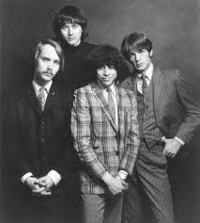
One of Classic Rock's true, one-hit-wonders, The Youngbloods had a brief, but interesting career. Jesse Colin Young got his start as a solo act on the Folk circuits of Boston and New York, and decided to form a band with guitarist Jerry Corbitt. The quartet took the name Youngbloods from the singer's second solo album.
The group was eventually selected as the house band at New York's famed Cafe Au Go Go, and established itself as a leading Folk Rock / good time attraction, and they moved to the San Francisco Bay area. Their first single, "Grizzly Bear" was a local hit and their second attempt, "Get Together" didn't do much better when it was first released. The record faded quickly but suddenly rocketed to #5 on the Billboard Hot 100 when it was re-released in 1969 after it had been used in a television public service ad. The tune was subsequently adopted as a counter-culture anthem. By that time, Corbitt had left, and The Youngbloods, reduced to a trio, were living in Marin County, CA. They released a few more albums in the early '70s (some live), but on these, the mellow California Rock sound that had served them well had begun to turn sour.
Jesse Colin Young went on to have a moderately successful career as a solo singer / songwriter, but his recording studio and house in Inverness, California, were destroyed in the Mount Vision fire in 1995. In 2006, Young moved his family to South Carolina and was still touring in the U.S. as a solo act into 2017.
Source: muzak1.musiciansforever.com/~rascals/
Photo Source: www.youngrascals.net/main_rascals.htm
The Young Rascals
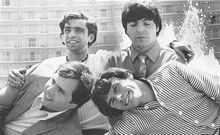
Like many bands in 1967, the Rascals seemed to turn psychedelic overnight; that year's album Once Upon A Dream was trippy and blissed-out, though it produced only one minor hit, "It's Wonderful." Coming back to earth, the Rascals (now officially not "Young") began embracing meditation and civil rights; their anthemic "People Got To Be Free" was their last top ten hit, but the gospel-ish followups "A Ray Of Hope," "Heaven," and "See" were even better.
Source: muzak1.musiciansforever.com/~rascals/
Photo Source: www.youngrascals.net/main_rascals.htm
